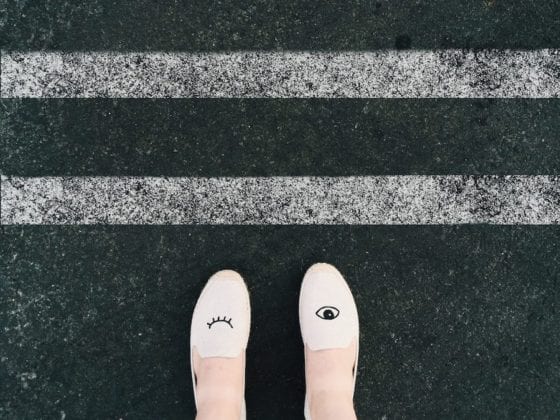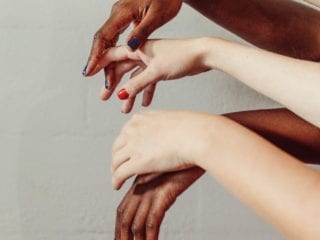Growing up on the east coast meant many things: Summer thunderstorms, fall leaves that just won’t quit, and the requisite 5th grade trip to Williamsburg, VA.
You’d clutch your brown paper lunch as you walked past wig makers and silversmiths to the town square where the tour guide in a three cornered, felted hat would stop quite suddenly. There before him were two tall wooden contraptions with holes for arms and a neck.
The stocks.
Textbooks explained this public form of punishment was for the entire town to hurl shame, insults and even trash. His slight British accent would ring out,
“If any of ye don’t follow the rules, it’d be the stocks for ye!”
This image has repeatedly crept up in my memory as I scrolled down my newsfeed in recent months. Judging from postings, our summers were filled with homemade popsicles of spinach and raspberry, pool time and constant updates on public figures.
In recent years it seems as if the news scroll on the bottom of our screens are just one celebrity’s bad behavior after the next. We relish in every poor decision — from not buckling in newborns correctly, to potential racism and everything in between. Soon our own choices, in life or relationship, begin to seem brighter in comparison. These successful figures that once made us feel small have, in a matter of minutes, fallen from their pedestal. They have sunk to our civilian level, or, if our pride is lucky, even lower.
I often find myself, along with many others, sinking deeper and deeper into the details of someone else’s mistake. Tweets and Facebook posts scream in all caps, blogs are furiously typed, the writing is on the wall: “They got what they deserved.”
In some cases, social media has even extended its public shaming to regular folk. The town square is ripe for one another’s tweets and actions, with refuse thrown from all corners of the globe.
Is our own sense of self so warped that we actually enjoy another’s fall from grace? And what if the most striking thing in all of this is not the fact that someone cheated on his or her spouse, or but how that fact then becomes such a scrumptious meal for us to devour? Are these fleeting moments of superiority actually making us feel content?
Are these fleeting moments of superiority actually making us feel content?
Is it possible in today’s social media world to allow justice to take its course, without another’s disgrace to become entertainment? Could it possibly begin when we let go of our need to shame in order to feel worthy?
“Ah, ye talked young man! Come around all, to view his punishment!”
He turned his head, his three cornered hat shifted ever so slightly, and he pointed John toward the stocks. At first we laughed — yes, our fellow classmate was disruptive, but he was also super cool – but the guide kept him there and soon John looked uncomfortable and a little sweaty. I smiled, for once enjoying my goody-two-shoe status, whilst watching a popular kid squirm.
I leaned over to a friend and loudly whispered, “He kinda got what he deserved.” That’s when the three corners turned to me and within seconds I was right alongside him, my arms in high, wooden holes.
Why yes, the pride most surely comes before the fall. The 11-year-old, shameful fall.
What if, instead of reveling in the disruptive, yet popular boy’s public shame, I took a moment to remember all of the times I’d not really listened to the teacher either, all of the times I snuck a glance at my desk buddy’s spelling test?
Instead of rushing to judgment and even glee in another’s failings, what if we take a moment to acknowledge our own humanity? Would that pause open us up to humility?
Long gone are the days when disrupting the class is fodder for the stocks. Today the social crimes are of a much greater degree, many involving a public figure’s family. Hidden in between the retweeted links and updated press releases are real people, who are hurting. Could our humility lead us away from insecurity and right into the arms of empathy? An act so intrinsic to happiness and wellbeing?
Perhaps, by resting in grace, we may realize that our sense of self isn’t dependent on anyone else’s life, but on how we lead our own.
Where do you think is the line between delivering justice and public shame? Do you think society errs on one side and not the other?
Image via Lydia & Emilie











3 comments
Awesome things here. I’m very satisfied to see your article.
Thanks so much and I am taking a look forward to touch
you. Will you kindly drop me a mail?
This is such a good post. It brings to mind how far we have come from “he that is without sin among you, let him first cast a stone at her.” What a self righteous mob we have become.
This is a strong word for the precarious nature of social media these days. Everyone now has a voice. While that can be delightful and empowering, it also brings with it a false sense of power. We own that voice, whether good or bad, and often neglect to think of the consequences. No longer is the idea that, if you have nothing nice to say then just don’t say anything, applicable. It takes a concerted effort and understanding of responsibility to act, react, or do nothing at all on our many various channels.
xx, leslie
http://www.onebrassfox.com